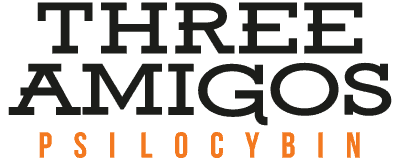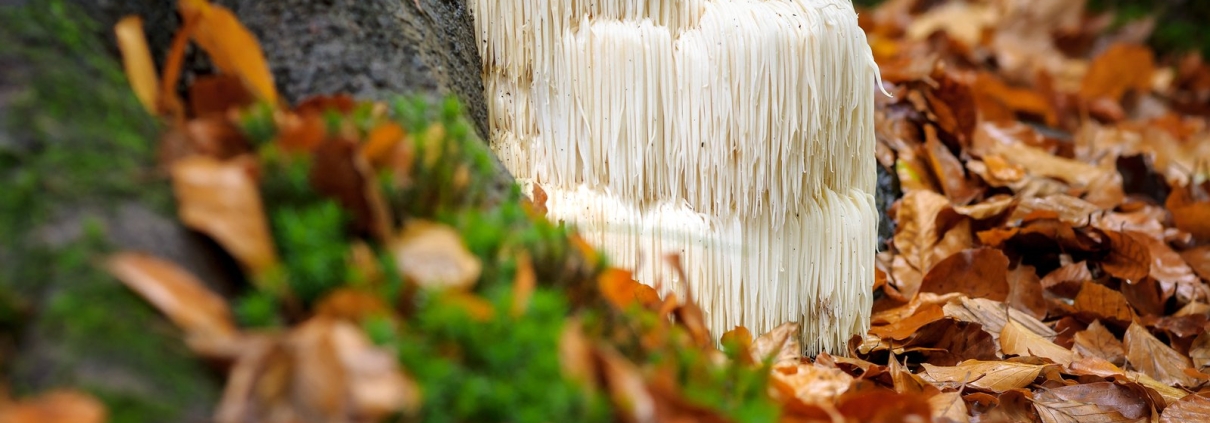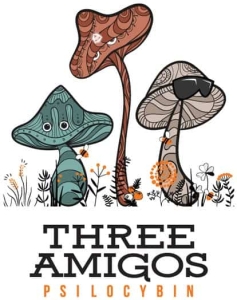Noontropic Mushrooms vs Magic Mushrooms
The concept of using mushrooms as medicine goes way back.
But the concept of using mushrooms as mental medicine, specifically to boost creativity and productivity, is arguably newer. In the last few years a new wave of fungi-fueled nootropics – supplements designed to boost your brain — has risen to prominence within the larger health and wellness industry.
But what are nootropic mushrooms, exactly? And how are they different than magic mushrooms? In this article, we’ll be covering these topics and more. As it turns out, sometimes nootropic mushrooms and shrooms of the magical variety are one and the same
- What are nootropic mushrooms? Cordyceps, Lion’s Mane mushroom, and more
- Nootropic mushrooms 101
- Lion’s mane mushroom
- Cordyceps
- Reishi
- Maitake
- Chaga
- Is psilocybin actually a nootropic mushroom?
- How to microdose psilocybin for maximum nootropic benefits
- What the people are saying about our mushroom supplements
What are nootropic mushrooms? Cordyceps, Lion’s Mane mushroom, and more
To answer that question, let’s look at a short but sweet definition for the word nootropic. After all, words like ‘adaptogenic,’ nootropic,’ and ‘functional’ are thrown around so often these days that it can be a challenge to pin down their actual meaning. Anyways, here’s the definition:
Nootropic: a substance that enhances one’s cognition and memory and facilitates learning.
Here’s another way to think of it that may or may not be helpful. Nootropics are a type of adaptogen geared toward brain health, and adaptogens belong to the broader class of functional supplements.
Popular nootropics include:
- Stimulants like Ritalin
- OTC drugs like piracetam
- Amino acids like L-theanine
- Herbs like ginkgo biloba
- Everyday drinks like coffee and tea
Caffeine is probably the most widely used nootropic. There’s a lot to love about caffeine-rich drinks like coffee — its potential benefits include better muscular endurance, improved productivity, and faster reaction times. [1]
Nootropic mushrooms 101
Mushrooms are an impressively diverse group. They’re literally in a class of their own — apart from plants and animals – when it comes to their reproduction, composition, and post-ingestion effects. And while there are thousands of types of mushrooms out there, five types of mushrooms shine the brightest when it comes to nootropic activity:
Lion’s mane mushroom
- Lion’s Mane: Enhances cognitive functions and supports nerve growth.
- Cordyceps: Boosts energy and may improve athletic performance.
- Reishi: Known for its stress-reducing and immune-boosting properties.
- Chaga: Packed with antioxidants, supports immune system health.
- Turkey Tail: Excellent for gut health and immune support.
Research suggests that nootropic mushrooms work by boosting nerve growth factor, or NGF-1, which in turn boosts the repair, recycling, and new growth of nerve cells throughout the brain. Some nootropic mushrooms may also work by increasing oxygen uptake, allowing both body and mind to function faster and more efficiently.
Still, other nootropic shrooms may stabilize your mood, reducing the highs and lows that might otherwise steal your joy and reduce your productivity. [2]
What gives nootropic mushrooms so many health benefits? What makes them so adept at improving your well-being? In short, they contain tons of bioactive. Most adaptogenic/nootropic shrooms possess their own unique blend of beta-glucans, polysaccharides, polyphenols, triterpenes, and other antioxidants. Such ingredient diversity gives shrooms the ability to improve health without many side effects. [3]
Now that we’ve covered the basics, let’s look at common brain-boosting shrooms one by one.
Lion’s Mane mushroom
Lion’s Mane mushroom is probably the most famous cognitive-enhancing mushroom of all. Known and loved (and named!) for its characteristically shaggy appearance. Lion’s Mane has been prized by Traditional Chinese Medicine for thousands of years. So much so that monks drank yamabushitake, or Lion’s Mane tea, to make their meditation sessions even more fruitful! [4]
Lion’s Mane mushroom contains several known nootropic compounds, including erinacines that boost the growth of new neurons by stimulating nerve growth factor. One 2009 study found that Lion’s Mane reduced cognitive impairment in senior adults. [5]
Meanwhile, mycologist Paul Stamets calls Lion’s Mane the “second smartest mushroom in the world.” (After psilocybin, of course . . . but more on this medicinal mushroom later.)
Cordyceps mushrooms
Cordyceps is another highly popular mushroom supplement.
Used by athletes to boost energy, recovery, muscle oxygenation, and more, cordyceps are as practical as they are functional — even less-than-athletic people can benefit from cordyceps supplementation. Their ability to improve oxygen levels within the bloodstream mean they may improve cognition in virtually everybody. No placebo effect here! [6]
Reishi mushrooms
Reishi is probably one of the best mushrooms out there for brain health. It may alleviate a whole slew of conditions related to neuro-wear-and-tear, including:
- Emotional fatigue
- Mental fatigue
- Brain fog
- Anxiety
- Depression
- Alzheimer’s
Interesting side note: is it any coincidence that the mycelium networks mushrooms rely on for growth look so much like the neurotransmitter networks within the human brain? far-from-equilibrium thermodynamicists like Dr. Bob Melamede think not!
Maitake mushroom
Maitake may be slightly less well-studied than some of the other nootropic shrooms we’ve mentioned here, but don’t let that stop you from giving this one a try! Some research shows that maitake may reduce depressive symptoms, regulate cholesterol, and reduce high blood pressure. It may also benefit your immune system. [7]
Chaga mushroom
Chaga is a mushroom that can be found surprisingly close to home — you might find it growing on birch trees throughout many parts of Canada.
Chaga is incredibly rich in inflammation-fighting antioxidants, scoring above nearly all fruits, veggies, and herbs on the ORAC antioxidant scale. No wonder it’s being researched for its immune-boosting, pain-relieving qualities. And true to its nootropic status, chaga is also good for mental clarity.
Noontropic Mushrooms vs Magic Mushrooms
The primary difference lies in their active compounds. Noontropic mushrooms typically contain bioactive substances that are believed to support brain health and boost cognitive functions without causing psychoactive effects. For instance, Lion’s Mane is known for hericenones and erinacines, compounds that may stimulate the growth of brain cells.
On the other hand, Magic Mushrooms contain psilocybin, which the body converts to psilocin. Psilocin is a psychoactive substance that significantly alters perception, mood, and a range of cognitive processes. These effects are much more immediate and profound compared to the subtle cognitive enhancements attributed to Noontropic mushrooms.
How are they used?
Users of Noontropic mushrooms might notice improvements in mental clarity, reduced brain fog, and enhanced concentration over time. These effects are generally mild and accumulate with regular consumption. In contrast, Magic Mushrooms offer a more intense and immediate experience that can vary widely among individuals, often depending on the environment and mental state at the time of ingestion. The experiences can range from euphoric and enlightening to, in some cases, challenging and introspective.
Noontropic mushrooms are commonly used for their potential long-term benefits to brain health, such as promoting neurogenesis and managing symptoms of neurological deterioration. They are often incorporated into daily health routines to maintain cognitive function and support overall mental wellness.
Noontropic Mushrooms are typically used in a straightforward and everyday manner, easily integrating into wellness routines. They are commonly available as supplements in forms like capsules, powders, or tinctures, and many people add these powders to their smoothies, coffee, or tea to enjoy the cognitive benefits without altering their daily habits.
Some nootropic mushrooms, such as Lion’s Mane, are also edible and can be included in meals, providing both nutritional and cognitive advantages. Consistency is key with Noontropic mushrooms; regular intake is recommended to maintain and enhance cognitive functions and overall brain health gradually.
On the other hand, the use of Magic Mushrooms, particularly in therapeutic settings, involves more controlled and structured practices. In therapeutic contexts, Magic Mushrooms are administered under strict supervision in sessions that are often guided by trained therapists. These sessions are meticulously prepared to provide a supportive environment, helping individuals navigate the intense experiences that these mushrooms can induce, which can last several hours.
Dosage is carefully calculated based on individual needs, ensuring safety and effectiveness, and unlike Noontropic mushrooms, Magic Mushrooms are not typically used daily. Their occasional use is more about the depth of the experience and the profound insights they provide, which can lead to significant long-term psychological benefits from just a few sessions. This distinct usage reflects their powerful role in psychological exploration and healing.
What are the Benefits?
Noontropic Mushrooms really shine when it comes to supporting your brain power over the long haul. They’re like the good friends who are always there, helping you stay sharp and focused. Cordyceps can give your energy levels a boost, which is great for those long days when you need to stay on top of your game. And let’s not forget about Reishi, which besides supporting brain health, also helps in managing stress—like a chill pill in mushroom form!
Then there are Magic Mushrooms, which, although they come with a bit more caution tape due to their psychedelic nature, offer some seriously deep benefits in a therapeutic setting. When used under professional guidance, they can be a gateway to new insights about yourself and the world. They’re especially promising for folks dealing with tough stuff like depression or PTSD, offering breakthroughs that sometimes aren’t achievable with traditional treatments. The experience can be a profound journey, sometimes helping to reset your emotional and mental state in ways that are truly transformative.
Types of Magic Mushrooms
Psilocybe cubensis: The most common type used for its psychoactive properties.
Psilocybe semilanceata (Liberty Cap): Known for its strong potency.
Psilocybe cyanescens: Recognized by its wavy cap, and typically more potent than P. cubensis.
Psilocybe azurescens: One of the strongest in terms of psilocybin content.
Is psilocybin actually a nootropic mushroom?
And now for this article’s most important question of all: is psilocybin included in our list of nature’s best nootropic mushrooms?
New research says yes. A recent study from Imperial College London’s Centre for Psychedelic Research has found that the psilocybin component of magic mushrooms can ‘open up’ depressed people’s minds — a benefit that remains for up to three weeks after one’s last use.
This opening-up effect was associated with reduced rates of depression and improved brain connectivity — something not seen with conventional antidepressant meds. Translation? Psilocybin could help the break break out of rigid, restricted ruts. [7]
Other studies are echoing this one’s findings as we speak. If things continue the way they have been, psilocybin mushrooms could soon become a new golden standard for mental health treatments.
“In previous studies, we had seen a similar effect in the brain when people were scanned whilst on a psychedelic,” explained the paper’s senior author, Professor Robin Carhart-Harris. “But here we’re seeing it weeks after treatment for depression, which suggests a ‘carry over’ of the acute drug action.
Perhaps Imperial Centre professor David Nutt said it best:
“These findings are important because for the first time, we find that psilocybin works differently from conventional antidepressants — making the brain more flexible and fluid, and less entrenched in the negative thinking patterns associated with depression. This supports our initial predictions and confirms psilocybin could be a real alternative approach to depression treatments.
How to microdose psilocybin for maximum nootropic benefits
Ready to experience the nootropic + psychedelic benefits of magic mushrooms for yourself? If so, our Nootropic Magic Mushroom Capsules might be a smart choice (pun possibly intended).
One of our most popular nootropic supplements takes things a step further by combining psilocybin with the Lion’s Mane mushroom we mentioned earlier. Take one capsule every day (or as often as every 2-4 hours) to max out your day’s creativity, productivity, and enjoyment. You might just find yourself treasuring the little things in life again.
The full active ingredients list includes:
- 100mg Lion’s Mane
- 150mg green tea extract
- 50mg ginger root
- 50mg niacin
And if you’re wondering how to best take high-quality magic mushrooms to max out their nootropic qualities, here’s what we recommend:
- 1 dose per day for 4 days followed by a 3-day break, or
- 1 dose per day for 2 days followed by a 2-day break
What the people are saying about our mushroom supplements
But don’t just take it from us. Theory isn’t useful unless it can be translated into practice anyway! Here’s what people say about our nootropic supplements.
Only a few days in, I feel energized and more motivated to work. You don’t really feel the buzz, which is great for day-to-day use. I’m curious to see if it’s going to make a difference on the long term. Let’s see!
Meanwhile, Melissa is new to micro dosing but loves it so far:
First time buying these mushrooms. Bought 3 packs at once. I’m new to microdosing and these mushrooms gave me more of an enlightenment and boost compared to others. I will definitely be buying more in the future.
And Rachel super loves the results she’s been getting:
I’m super loving the microdose! I will be re-ordering this product again soon. It improves my mood and creativity. I look forward to dosing. It reduces my desire to overeat or to drink booze. It creates a very pleasant state of being and without any smoking. Thank you.






Leave a Reply
Want to join the discussion?Feel free to contribute!